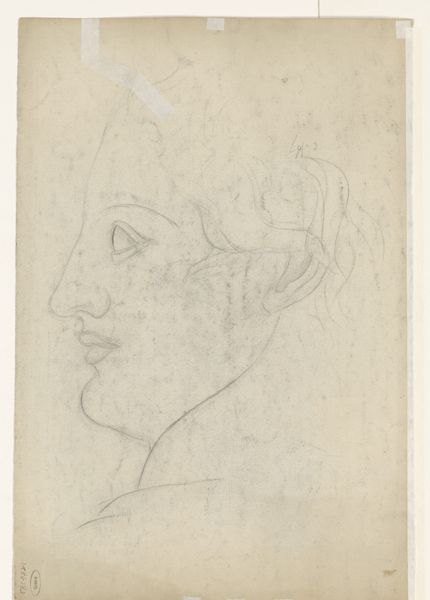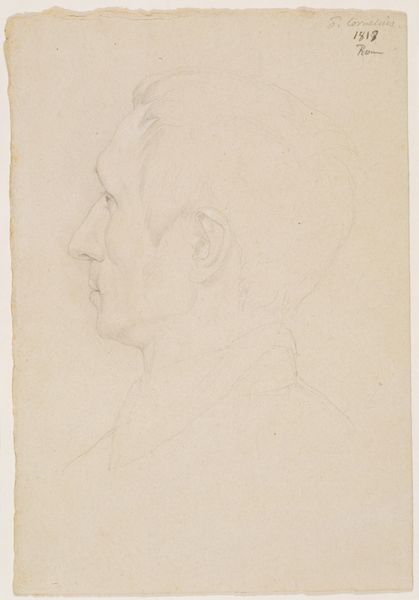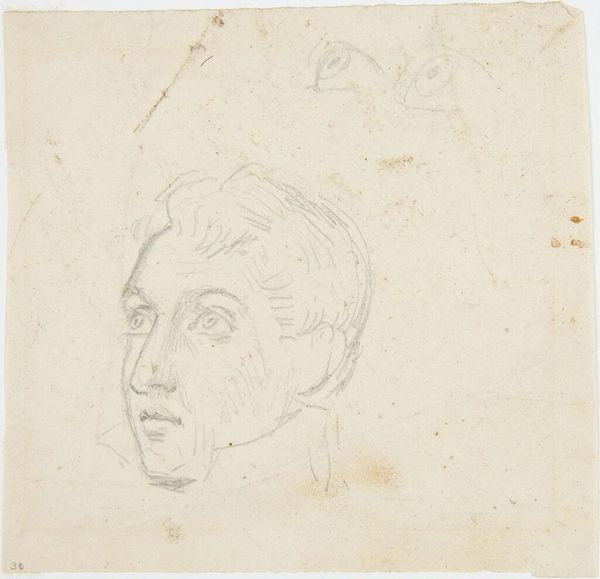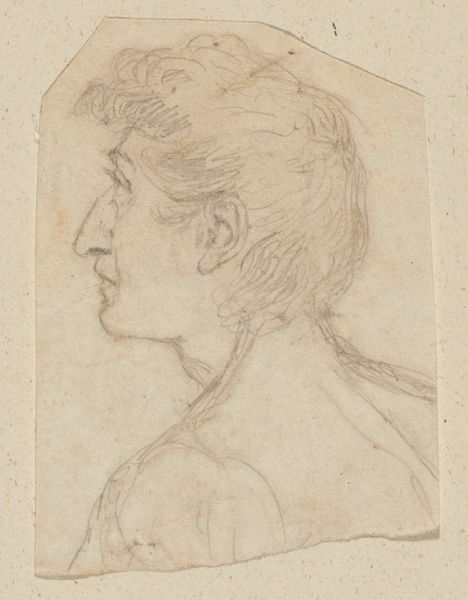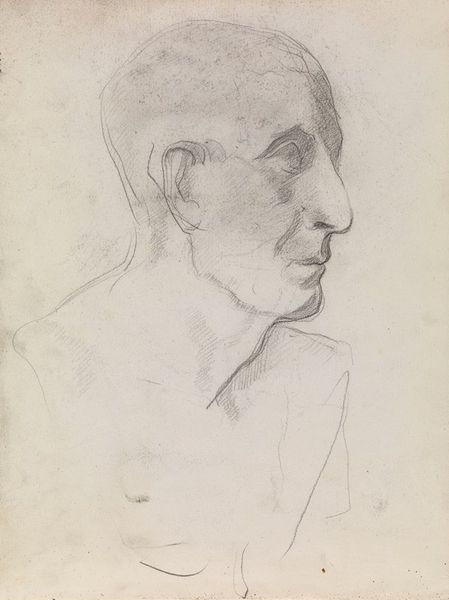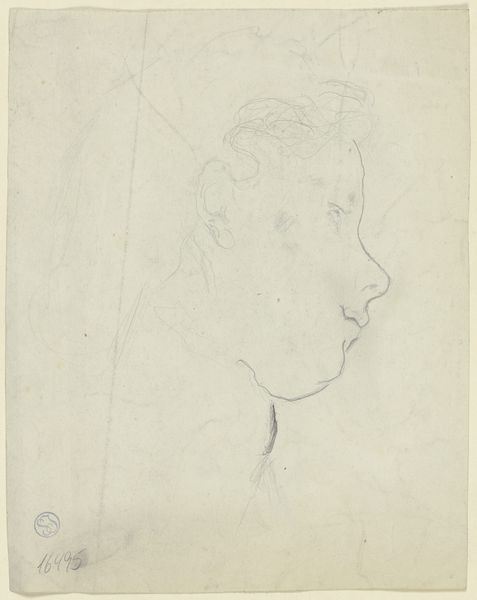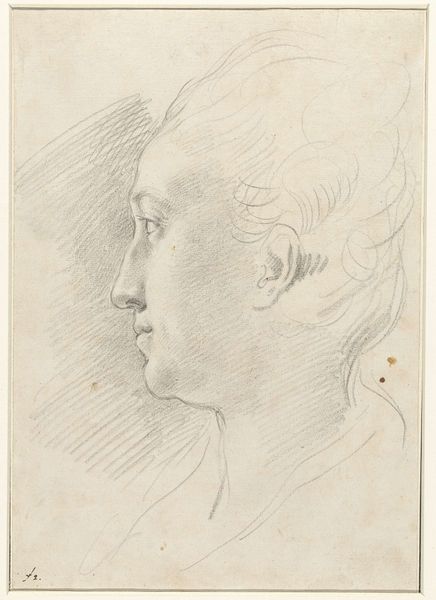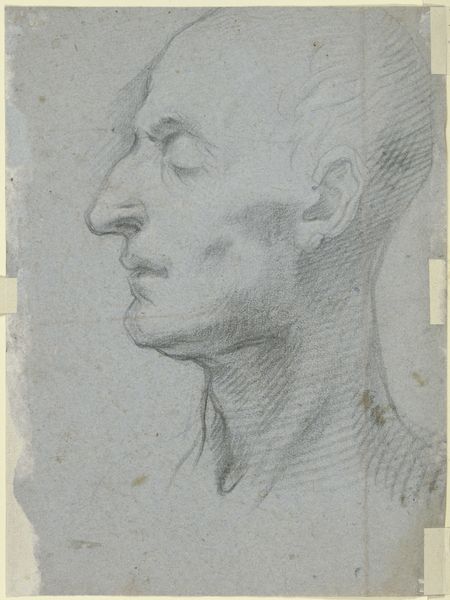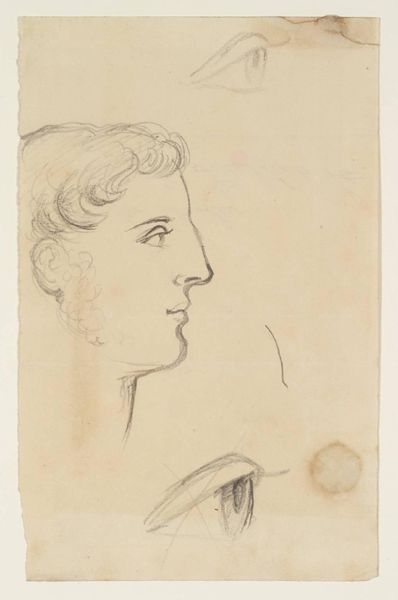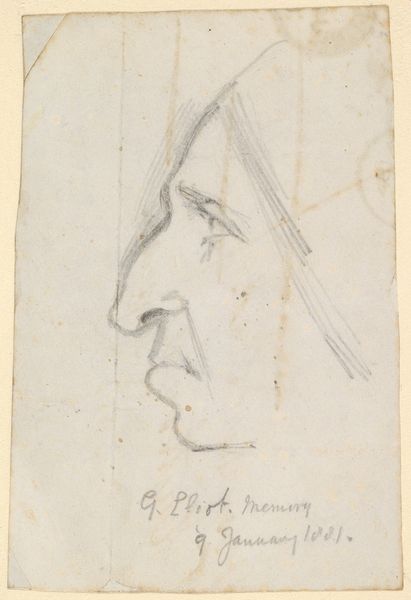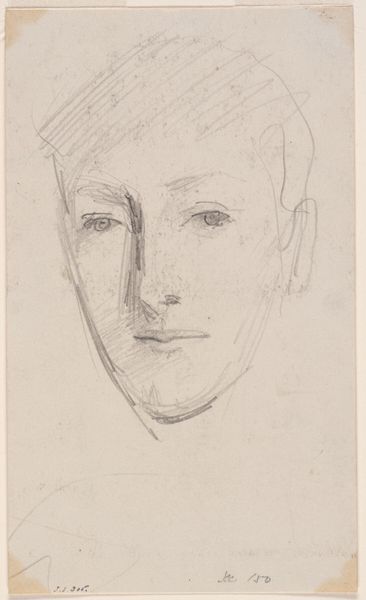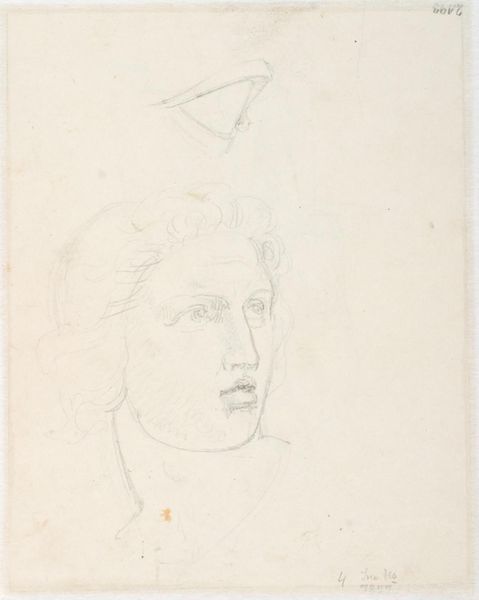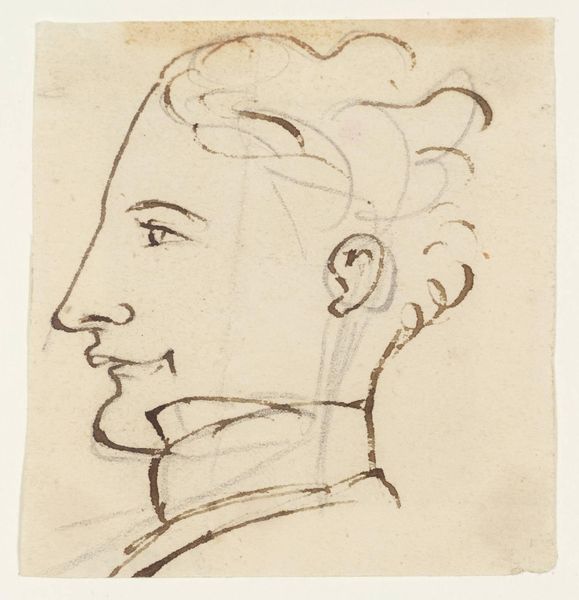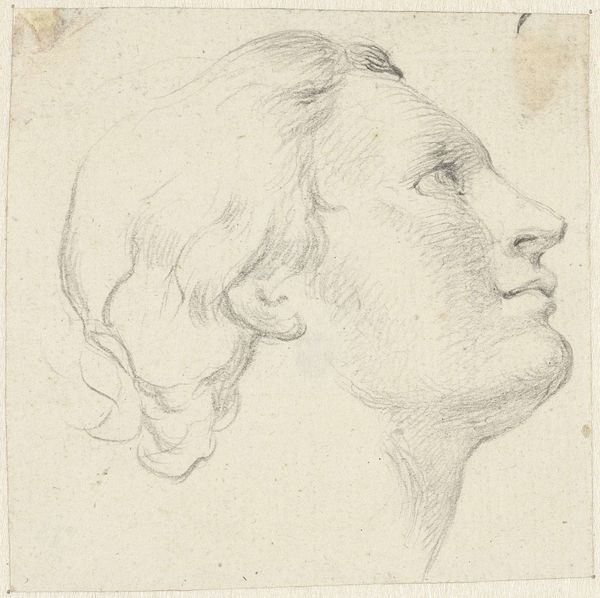
drawing, pencil
#
portrait
#
drawing
#
self-portrait
#
pencil drawing
#
pencil
#
portrait drawing
#
realism
Dimensions: height 296 mm, width 208 mm
Copyright: Rijks Museum: Open Domain
Editor: This is Jan Veth’s pencil drawing, "Portret van mevrouw Anna Dorothea Veth-Dirks", created sometime between 1874 and 1925. It's quite delicate, almost ghostly, in its rendering of the subject. What do you see in it? Curator: The essence of this portrait resides within the nuanced execution of line and the deliberate control of tonal value. Consider the economy of means, the artist uses only a pencil, reducing form to its fundamental structure. We observe a clear formal geometry underlying the portrait: the sharp angles of the nose in opposition to the soft curves of the ear, for example. Editor: So, it's less about representing Anna Dorothea perfectly, and more about exploring form itself? Curator: Precisely. While the drawing adheres to realist principles, the primary concern isn't verisimilitude. Note how the hatching technique both defines the contour of the face and simultaneously flattens the image. What does that visual tension communicate to you? Editor: It makes me think about the nature of portraiture itself: the attempt to capture something real on a flat surface. The drawing almost seems to acknowledge that impossibility. Curator: An astute observation. We might further discuss how Veth's restrained technique interacts with prevailing late 19th and early 20th century aesthetic theories regarding line, form, and artistic intention. The work itself serves as a formal treatise. Editor: This has shifted my perspective on seeing art, appreciating that a portrait is so much more than what you simply see at face value! Curator: Indeed. Analyzing the formal structure unlocks a deeper understanding and appreciation.
Comments
No comments
Be the first to comment and join the conversation on the ultimate creative platform.
